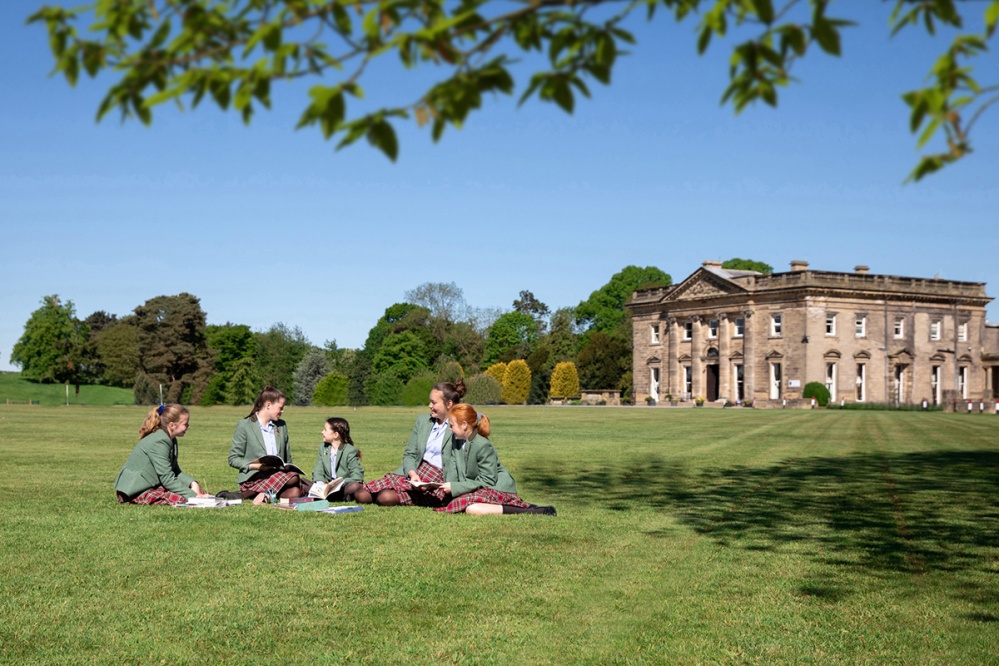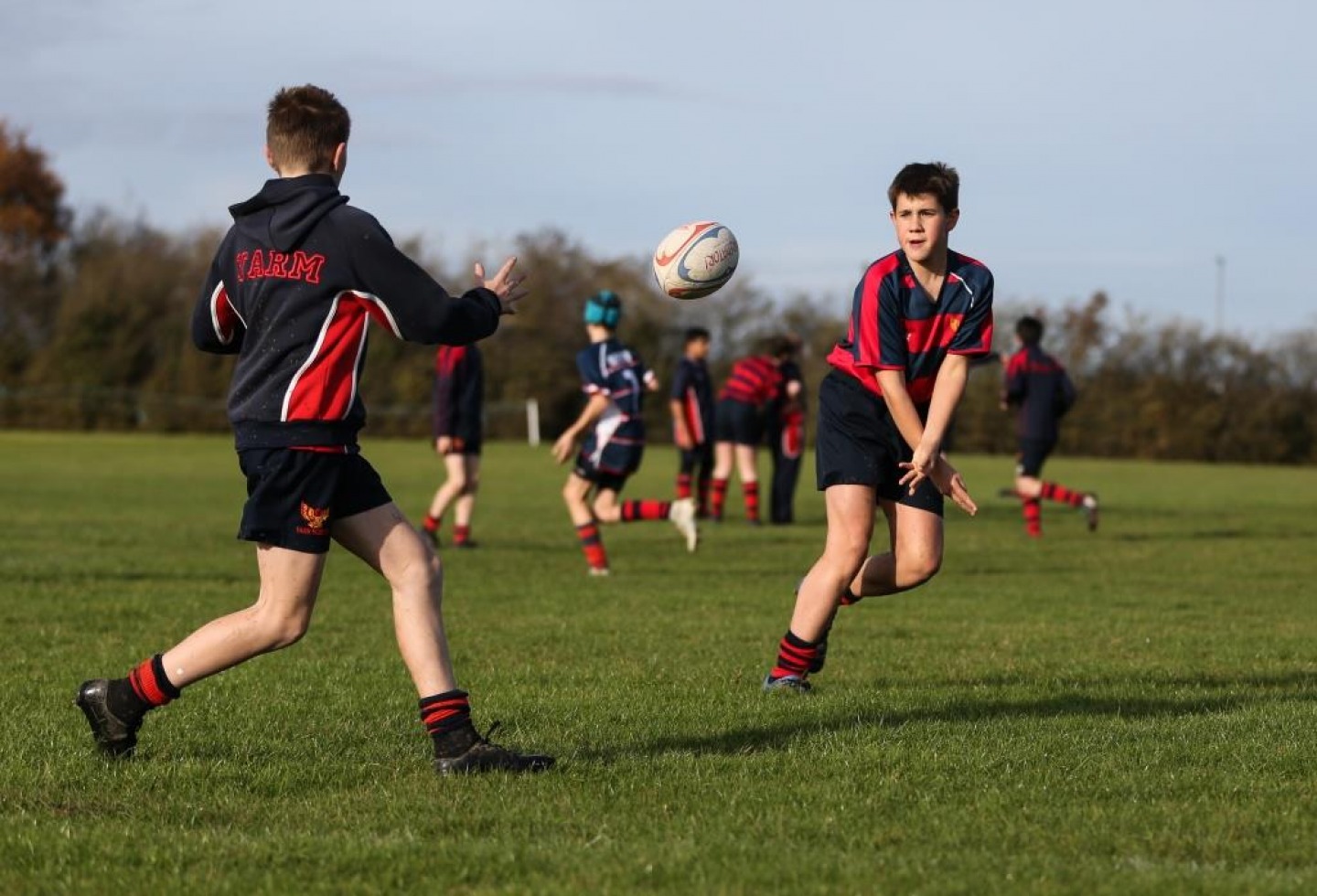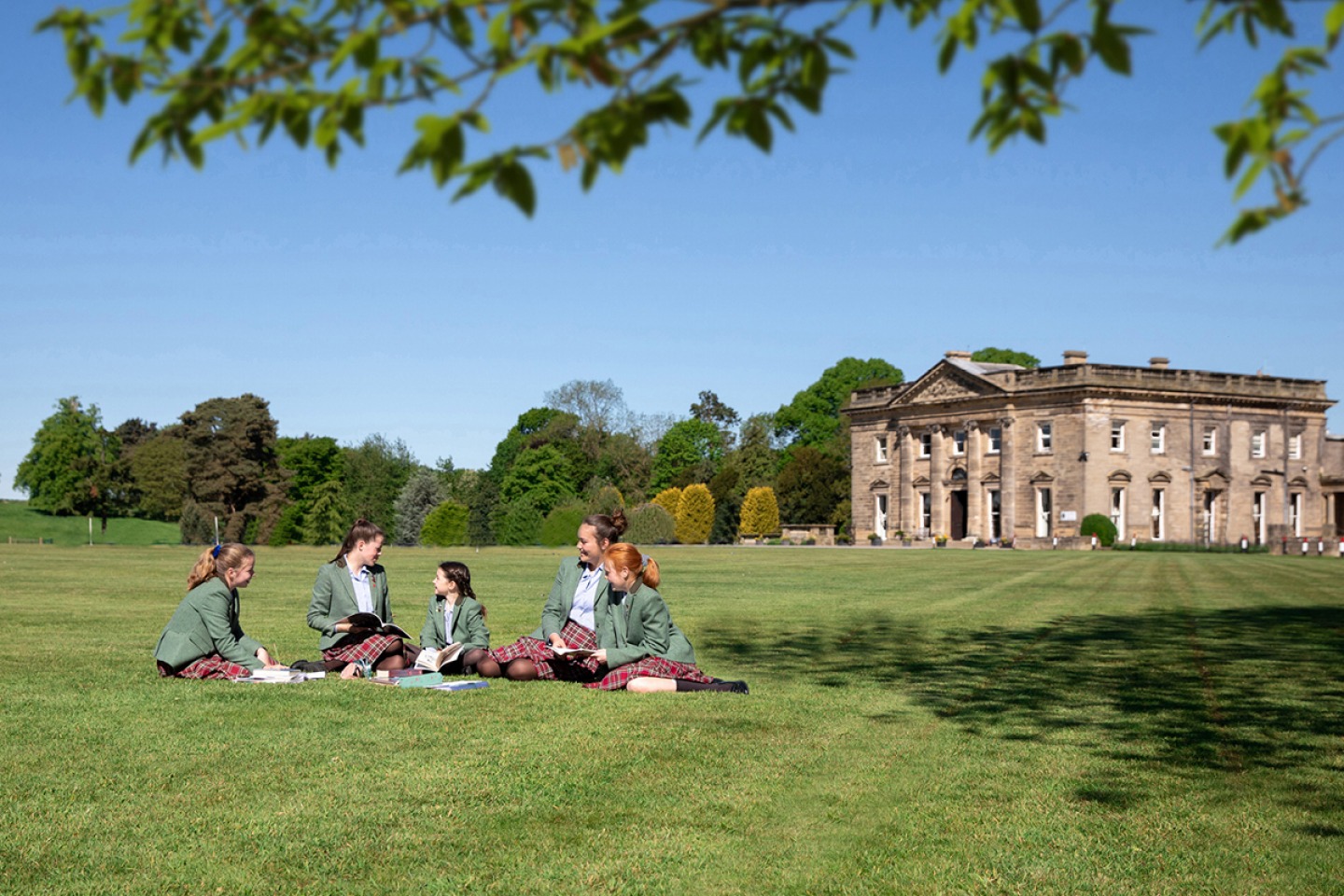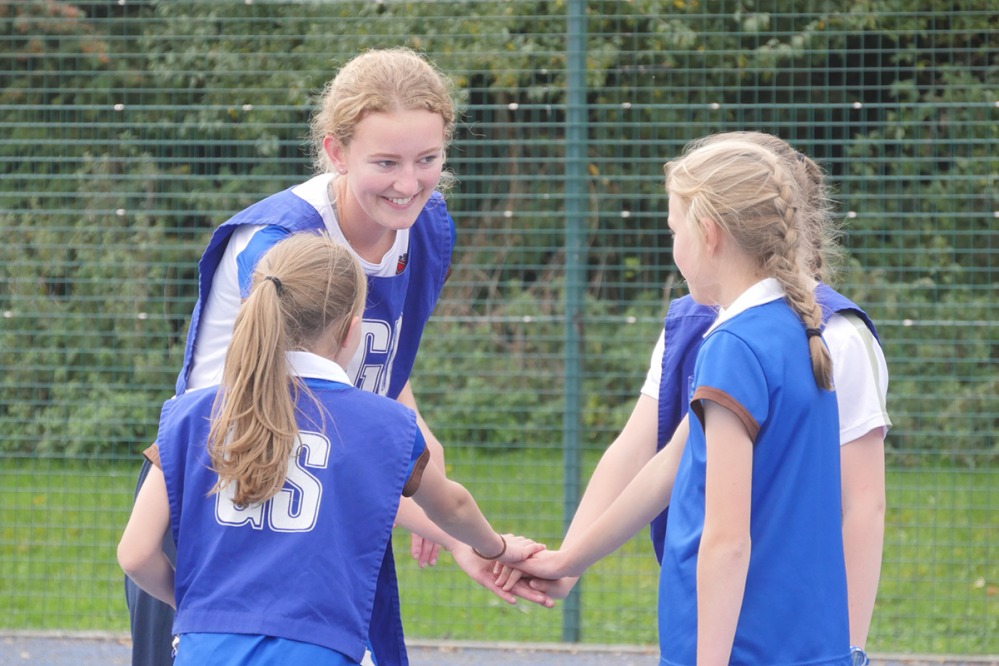How Schools Prepare Students for the Future

Not all of your child’s learning has to take place at their desk. Staff from the North’s top schools explain how they prepare pupils for later life
Barnard Castle School certainly aren’t limited on the extra activities available at school. ‘Beyond the traditional spheres of Music, Drama and Sport, we currently offer more than 100 activities to our students, which includes a bespoke Mind, Body and Soul programme for Year 7 and 8s,’ Headmaster Tony Jackson tells us. ‘Barney’s extensive co-curricular programme is a major part of our school, as it is in these environments that most life lessons are learned.’
Tony encourages his students to problem-solve, work in a team, demonstrate leadership and have emotional intelligence. ‘Resilience and humility must also be at the very heart of our young people,’ he adds. ‘All these attributes are delivered most effectively through extra-curricular activities. Be it missing out on a part in a play, or performing on stage, or standing with teammates to defend a goal or a try line; winning and losing. All these experiences help develop in our children the attributes they will need, and the more exposure they can get, the better, which is why our activity programme is so varied. We often find that a number of our pupils create and lead their own activities as well, demonstrating leadership and innovation.’
Yarm School prepare their pupils for later life both inside and outside the classroom. ‘In the classroom we foster a culture of academic curiosity and ambition, supporting pupils to advance their skills and knowledge beyond the curriculum,’ marketing executive Alison Parker tells us. ‘We provide pupils with the opportunity to learn more about themselves and to see what they are truly capable of, allowing them to foster independence, adaptability and resilience, and retain perspective in the face of adversity. Our careers department is engaged with pupils throughout their journey through the school, offering a range of opportunities to help them plan and shape their future, broadening their horizons and giving bespoke support for a variety of destinations and careers beyond school.’
Outside the classroom is no different. ‘We offer broad and exciting extra-curricular opportunities to provide enrichment, challenge and enjoyment for every pupil,’ Alison continues. ‘The range of activities – from outdoor education to debating, rowing to Community Action Group, music activities to coding, and so much more – help pupils to learn about themselves and others in many different contexts, meaning that educating for life is at the heart of all that we do.’ But which skills are most important? ‘We feel that independence, adaptability and resilience are key skills in our rapidly changing world,’ Alison says. ‘Furthermore, we believe that our pupils should develop a strong sense of service, understanding the value of community and the importance of making a contribution. These skills and outlook cannot be directly taught in a simple lesson, but rather are modelled by our fantastic teachers, instilled by our values and culture, and fostered by our supportive and nurturing pastoral team.’


The proof is in the pudding with Yarm School (you’ll find that at their open days in late spring) and their sporting successes speak for themselves. Their school teams achieve great success at regional level, often progressing into national competitions, with success in rowing, hockey, rugby, netball, cricket and tennis to name just a few. ‘At Yarm, there is a culture of participation and enjoyment so that sport is seen as a key part of every pupil’s successful and balanced approach to their lives, with fitness and physical health central to our understanding of the value of sport. Sport for all is embraced here: in our prep school, almost every pupil has represented the school at sport.’
Newcastle Preparatory School similarly pride themselves on developing this resilience to cope with whatever life may throw at you, and combine that with the all-important skills of being thoughtful and kind and contributing to the world in a positive way. ‘Underpinning our broad and varied curriculum are the key components of problem solving, challenge, team work, respect, tolerance and inclusivity,’ says Head, Fiona Coleman. ‘Whether it be making dens together in our forest school, organising charity days for worthwhile causes or contributing to the climate change debate, all our children can see the bigger picture and are keen to make a difference.’
Students here make the most of their time at school by taking part in clubs, from Sport to Music, Drama and Science (and many more). ‘They enjoy their time with friends, making memories and simply relishing each exciting and busy day,’ continues Fiona. ‘Our curriculum is a diverse one, with committed teachers sharing their passions and forging a life-long interest in learning. At NPS we believe there is no limit to what you can achieve, as children are encouraged to fly rather than stand still; a message that they can take. with them through life.’
At Queen Mary’s staff encourage resilience and independence in their pupils, so that they leave the school confident and ready for all opportunities. Kindness is important at Queen Mary’s, and staff teach girls to always look out for others (both in school and outside school hours). ‘Pupils mature from the inside out and we make this possible in a variety of ways,’ Head Carole Cameron explains. ‘A large range of extra-curricular activities, including Outdoor Education, are offered daily. This includes canoeing, river swimming, climbing and overnight camps. Physically challenging the girls in a safe environment builds valuable skills that will stay with them throughout life. In addition to The Duke of Edinburgh Award Scheme, senior girls are encouraged to take on leadership opportunities and work alongside younger pupils in dance, sporting and musical challenges.
‘The school’s PSHE and Careers lessons cover key issues such as healthy relationships, life in the wider world and health and wellbeing. The Year 11 post GCSE Leavers’ Programme aims to equip pupils with important life skills – including financial budgeting, car maintenance and self-defence. We also run a Female Futures Forum, which introduces pupils to former alumnae and aims to inspire them to consider a variety of interesting career opportunities. We have a wide range of extra-curricular clubs and activities that allow pupils to pursue their interests and discover their passions. Whether they are into riding, drama, cross-country, illustration, IT, Harry Potter, choir or hockey, there is something for everyone and we encourage everyone to join in and try everything, at least once.’

At Tranby, staff are committed to bringing out the best in all pupils so they can achieve their best in a variety of projects, clubs and societies. ‘Our short, medium and long-term development projects seek to build for the future and invest in the provision for each child,’ says Headmistress, Alex Wilson. Pupils are inspired to find their niche in order to thrive, and are encouraged to take risks and tackle challenges head on. ‘Tranby prepares students for life, whilst instilling in them understanding of others and a desire to make a difference in the world,’ says Alex. To allow students to thrive while in school (and therefore excel after school), staff must also focus on their wellbeing.
Christian San José, Deputy Headmaster, oversees wellbeing at Giggleswick School. Wellbeing is placed at the centre of everything staff do and is embedded into lessons, co-curricular activities, boarding and the pupil’s daily lives. ‘Obviously schools are a place of education, so everything we do has got to focus on a provision of good learning,’ Christian says. ‘But it is also incumbent on us to ensure each child is safe, looked after and given the chance to thrive. Societal changes have really pushed good mental health and wellbeing to the forefront of people’s minds, and that’s a good thing. We should be looking out for each other and be comfortable having these conversations.
‘What it’s not about is a lessening of expectations. In fact, it’s the opposite. By giving children the tools and support they need, and chances to do new things and pursue their own interests, we are able to push them to achieve and develop their confidence. One thing we’re very insistent on is a strong pastoral triangle between pupils, parents and us, and flow of information and conversations between each of the three corners of that triangle, recognising that supporting wellbeing is done in partnership with home.’
The school’s CAS (Creative, Active, Service) Programme offers more than 70 different activities which range from academic enrichment and sport to creative classes and service across the community. Each year, the Lower Sixth are given the opportunity to become mental health ambassadors as part of a Peer Education Project, which gives them specific training in wellbeing and mental health, and enables them to deliver workshops to the Year 7 students.
Durham Sixth Form Centre, the largest post-16 school in England, offers plenty of opportunities for students to learn skills for life in a diverse and vibrant community of more than 1,800 students, who have come from more than 60 different secondary schools across County Durham and further afield. ‘With more than 30 A-levels and almost 20 vocational qualifications, we have one of the broadest curriculums in the area,’ says student recruitment officer Lesley Boyle. ‘Our courses are delivered and led by specialist staff, who have expertise in working with 16–19 year olds, and, as our results testify, we have an excellent track record of academic success. In addition to our broad curriculum, we offer a wide range of extra opportunities in order to develop our students’ skills and talents.’
As part of ongoing developments, the Department for Education has awarded Durham Sixth Form Centre funding to provide additional capacity for post-16 learners in County Durham. ‘The funding has been awarded to support the sector at a time of demographic increase and is designed to ensure the additional space meets local and national skills requirements,’ Lesley adds. ‘We plan to use the funding to extend the lodge building at the edge of the site alongside the Visual Arts Centre. This is an exciting opportunity with building due to commence at the turn of the year in preparation for teaching in September 2022.’







